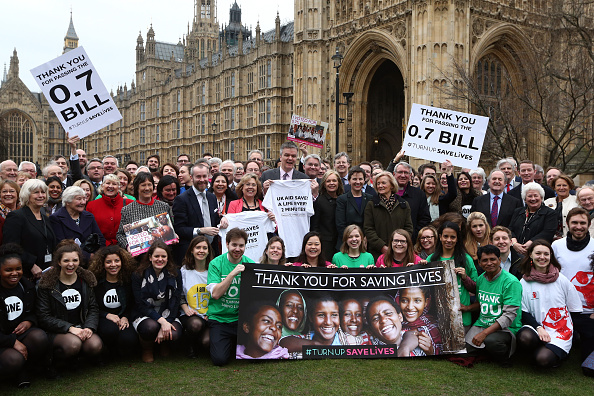The Conservative case for foreign aid

Now that the Conservative party leadership contest is over, a raft of new ideas have entered the mainstream policy agenda.
Many of these are liberal, exciting, and exactly what is needed to boost the British economy ahead of Brexit – but the very concept of international aid has taken something of a beating.
Contenders for the leadership, most notably Esther McVey who is now housing minister, promised to slash the aid budget in order to refocus on priorities at home.
In doing so, McVey and others were pandering to a strong number of grassroots members who believe that the aid budget should be the first to be slashed at in order to fund domestic policies to boost the economy.
Very few people have been seen proudly making the case for foreign aid. That’s a shame – because not only will targeted international assistance (which is now rightly being tied to the Department for International Trade) be essential in the post-Brexit climate, but it’s clear that aid works when priorities are in the right place.
International aid is a relatively fresh concept in economics. The first legal statute dealing expressly with official aid was passed by parliament in the UK in 1929, and it was only in the last half a century that aid has really begun to become the norm.
We are still working to make our aid more efficient, more targeted, and more productive, so it is understandable that opposition remains.
However, get aid right, and the effects can be impressive.
Both Taiwan and South Korea used to receive large amounts of aid from the US. Today, what were once economic basket cases are free-market powerhouses – economies which Britain can and should learn from.
Aid can also have a dramatic impact beyond the economy when it comes to other development goals. The assistance provided by the US was instrumental in eradicating smallpox across the world.
Similarly, aid extended by the UK has had significant public health successes, such as reducing child mortality rates in Nepal and maternal mortality in Bangladesh.
According to the Borgen Project – an institution committed to tackling global poverty – there are six key benefits to international aid for the recipient: improving infrastructure, agricultural technology, education, and health, responding to humanitarian challenges and natural disasters, and strengthening national security to help recipient countries to combat terrorism. To argue that the UK should not have a role in this work is misguided.
People are of course right to demand that international aid should be free of corruption and properly targeted – a far cry from shoddy vanity projects such as a girl band dubbed the Ethiopian Spice Girls, to which the British government contributed £5.2m.
Recipient governments also have an absolute duty to ensure that aid is properly used – and that’s why the new move to tie UK aid to trade and divert funds to on-the-ground activity is a positive step.
However, when efforts are made to avoid corruption, aid can work effectively to lift people out of poverty, improve global relations, open up global markets, and even benefit the donor as well as the recipient.
The debate around foreign aid usually centres on the moral case for or against – and the way these arguments are made matters.
In some cases, the morality angle can create the sense of “us” versus “them”. This is unhelpful; we should instead be making the case for spending based on what it can achieve, and in purely utilitarian terms, foreign aid should be seen as a great way to spend our money.
The number of lives saved by foreign aid is inspiring. According to a Save the Children report from 2012, four million fewer children aged under five died in 2010 than in 1990, while 131 countries now have over 90 per cent immunisation coverage for diphtheria, tetanus, and major preventable childhood diseases such as measles, compared to just 63 in 1990.
Aid isn’t the only driver of progress, of course. It should build upon a climate of free trade, and, as the Save the Children report itself acknowledges, it must be coupled with “strong political will, good governance and economic growth” in order to be successful.
But the prevailing sentiment in much of the Conservative party that it is a necessary evil whose budget should be kept as slim as possible is fundamentally unfair.
I’m not calling for a raise in the 0.7 per cent of GDP which we currently spend on aid. As the economy grows, real-terms aid spending will slowly creep up in line with it – without having to divert a bigger slice of the pie. But we should acknowledge that the current figure is fair, productive, and beneficial – and it would be great to have more outward-looking liberals standing up for it.
If we are prepared to beef up defence spending to assert global Britain on the world stage, we should apply the same logic to our humanitarian presence abroad.
Main image credit: Getty